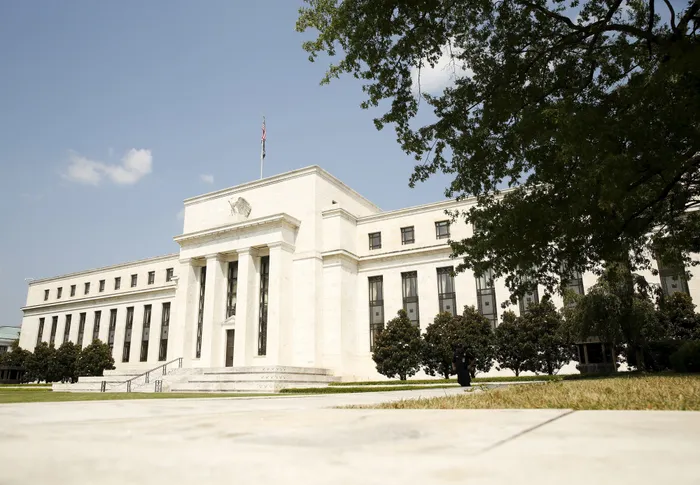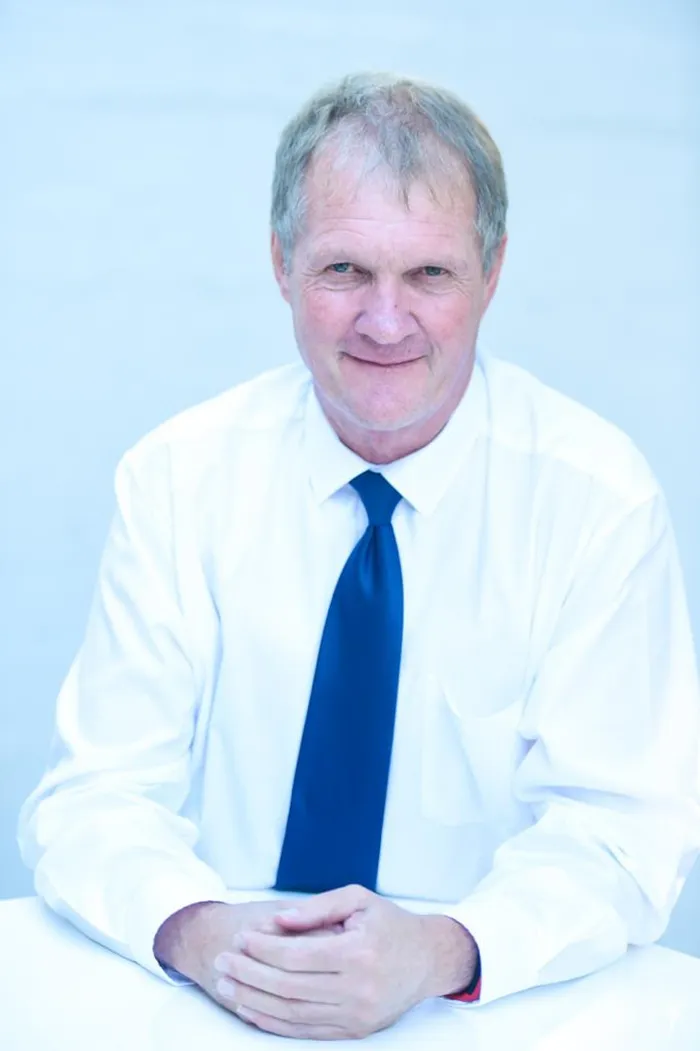Financial markets are uncertain after a month of rapid growth - Chris Harmse

There is uncertainty on whether the US will still lower its Federal Bank rate in September.
Image: File
The All Share index on the JSE on Friday ended lower, but for the week in line with global equity prices given the uncertainty if the US will still lower its’ Federal Bank rate in September. This after the dovish speech the previous Friday by Federal Reserve chairperson, Jeremy Powell, at the annual US Economic Policy Symposium in Jackson Hole, where he has indicated that there is now a greater possibility for US interest rates to be cut at Fed’s next meeting in September.
The more profound US inflation measure the Personal Consumption Expenditure (PCE) price index that was released last week showed an increase of 2.7% in July and is now much higher than the 2.0% target of the US Federal Reserve.
Global share markets now expects that the effect of the Trump tariffs that were imposed at the beginning of August will put upward pressure on this index. Investors are now worried that a cycle of stagflation, namely lower growth with inflation and increasing unemployment, may hurt company profits. Market players believe that the non-farm payrolls for August that will be released this coming week will indicate a slowdown in US economic activity if less than expected new jobs of 75K were created and the unemployment rate increased by 4.3%, up from 4.2% in July, will indicate stagflation process started. There is now sentiment that the Fed will have no choice but to lower interest rates in September. These uncertainties are not good for risk assets like shares and for the dollar exchange rate.

Chris Harmse is the consulting economist of Sequoia Capital Management and a senior lecturer at Stadio Higher Education.
Image: Supplied
Prospects for this coming week
South Africa awaits the publication by Statistics South Africa of the country’s quarter two 2025 GDP economic growth rate on Wednesday. The economy had a disappointing economic activity increase of only 0.1% in quarter one 2025. It is expected that the growth rate will improve to 0.5% during quarter two. New vehicle sales for August will be announced today, and it is expected that 51 000 new vehicles will be sold, giving them the same number as in July. The Trump sanctions should start showing in September its impact on vehicle sales.
On global financial markets investors, economists and analysts awaits the release of the US non- farm payrolls for August this coming Friday. Various Purchases Managers Indices (PMI) of different countries for August will also be released and the effect of the Trump administration’s tariffs on countries may be showing in the data already.
On the JSE the All Share Index ended last week flat losing 888 points, or 0.8%, for the week, after it reached a new record level of 102 978 points last Tuesday. On Wall Street the Dow Jones index ended the week flat, after last week’s strong gains and traded down only marginally by 0.19%. For the month of August, the index improved by 2.44% and still has grown by 9.6% since the beginning of the year. The S&P500 board lost only 0.07% last week, gained 1.4% last month and improved by 14.3% over the last year.
Equities, precious metals, and the Rand recorded a strong August.
Equities and the rand recorded a strong August. The All Share index gained 2.7% over the month, the Resources 10 index shot up by 5.8%, and the Financial Index (FIN15) increased by more than 3.5%. The lowering of the repo rate by 0.5% by the Monetary Policy Committee in July and strong increases in precious metal prices contribute to these strong gains. The Gold price shot up by $169 per ounce last month, the Platinum price advanced by $86 per ounce, but the Palladium price lost $93 per ounce. On the currency market, the Rand appreciated last month against the US dollar by 55 cents from R18.19/$ to R17.64/$ on Friday. Against the Pound, the currency was appreciated during August by 19c and against the Euro with 14c.
Chris Harmse is the consulting economist of Sequoia Capital Management and a senior lecturer at Stadio Higher Education.
*** The views expressed here do not necessarily represent those of Independent Media or IOL.
BUSINESS REPORT